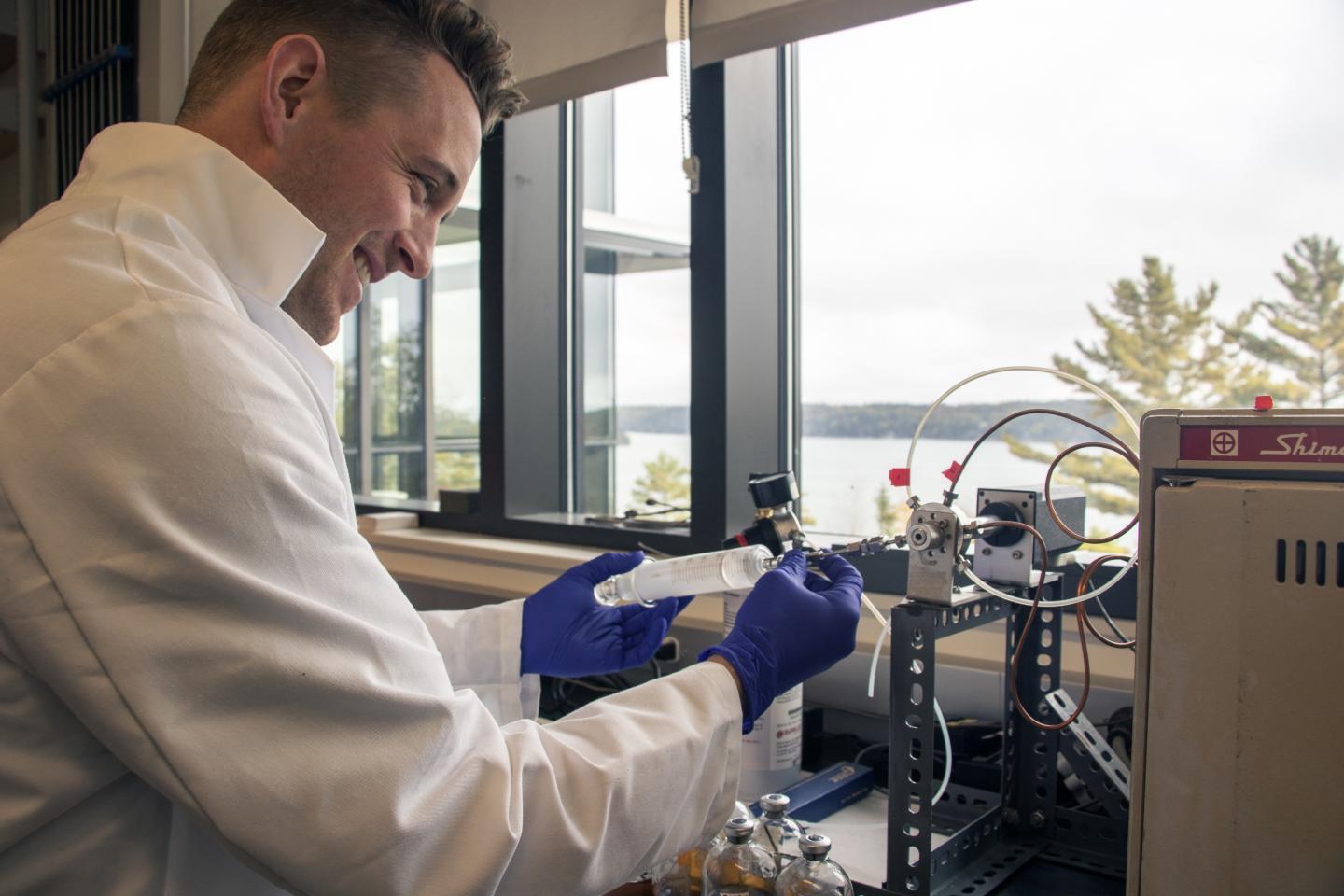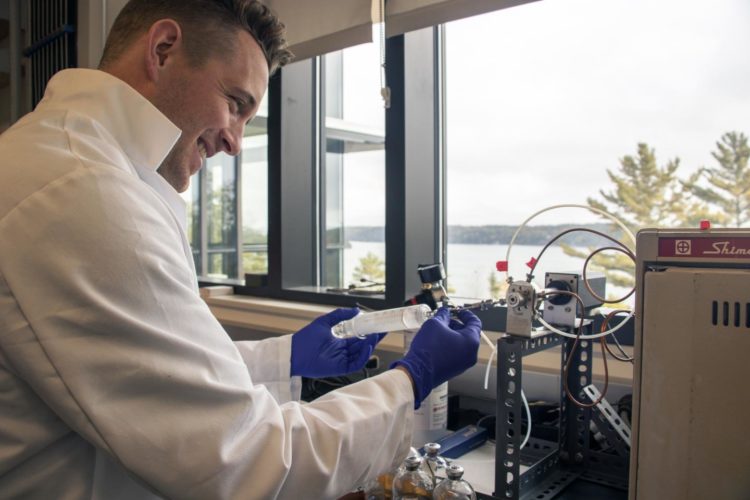New England scientists will test algae for dietary supplements to decrease methane emission by cattle

Credit: Bigelow Laboratory for Ocean Sciences
A new $3 million grant will support the efforts of New England scientists to reduce methane emission by cattle – the largest human-caused source of this potent greenhouse gas. Bigelow Laboratory for Ocean Sciences has spent the last two years developing tools to evaluate potential algae-based supplements that might have the desired effect, and it will now lead a collaborative effort to test for the most promising Maine seaweeds.
“This is some of the most exciting research I’ve been a part of,” said Nichole Price, a senior research scientist at Bigelow Laboratory and the project lead. “It has the potential to curb global methane emissions, and our approach can also directly support the region’s dairy and seaweed farmers.”
The new grant from the Shelby Cullom Davis Charitable Fund is the fund’s third investment in this research. It will allow scientists from Bigelow Laboratory to collaborate with researchers from Wolfe’s Neck Center for Agriculture and the Environment, Colby College, the University of Vermont, and the University of New Hampshire.
Many Maine seaweeds are rich in nutrients. Feeding them to cattle may have the added benefits of improving the health of the animals and even the quality of the soil where they pasture. The new project funding will enable the team to search for a seaweed, or blend of seaweeds, that optimizes all these potential benefits.
Price directs the Center for Seafood Solutions at Bigelow Laboratory, which develops science-based solutions for seafood industries. She believes that creating this new feed product could bolster Maine’s burgeoning seaweed aquaculture industry, remediate ocean conditions, help recycle important nutrients, and empower the dairy industry to improve both the health of their animals and the planet.
“Different types of seaweeds have different impacts on the complex microbial environment inside a cow’s rumen,” said Sabrina Greenwood, an associate professor at the University of Vermont and an expert in animal nutrition. “The approach taken by this project provides an incredible opportunity to really push ahead with identification and refinement of natural nutritional supplements that could be great for both the cow and the environment.”
The team will launch a two-year initiative in December, capitalizing on the tools developed by Bigelow Laboratory senior research scientists Steve Archer and Dave Emerson. Ben Twining, a senior research scientist and the Henry L. and Grace Doherty Vice President for Education, will contribute his expertise in trace metals to the project, and coordinate education initiatives with Colby College that allow students to learn from this research.
In their first round of experiments, the team will screen seaweeds for important compounds that make them good candidates for a feed additive. Next, they will conduct laboratory testing at the University of Vermont to determine if the most promising seaweeds effectively reduce methane production. They plan to conduct feeding trials with grazing herds at Wolfe’s Neck Center for Agriculture and the Environment and the University of New Hampshire in the summer of 2020 and 2021.
“We are thrilled to be part of this highly collaborative and actionable research,” said Dorn Cox, research director at Wolfe’s Neck Center for Agriculture and the Environment. “It is so important to build bridges between our working landscape and waterfront, and this project can help to share knowledge that will contribute to climate adaptation and mitigation.”
###
Bigelow Laboratory for Ocean Sciences is an independent, nonprofit research institute located in East Boothbay, Maine. From the Arctic to the Antarctic, Bigelow Laboratory scientists use cutting-edge techniques to understand the ocean’s mysteries, address its challenges, and unlock its hidden opportunities. Learn more at bigelow.org, and join the conversation on Facebook, Instagram, and Twitter.
Media Contact
Steven Profaizer
[email protected]
207-315-2567 x103
Original Source
https:/





